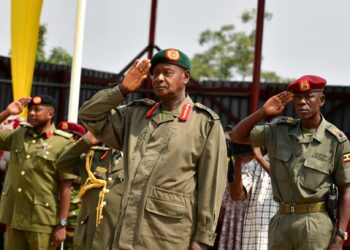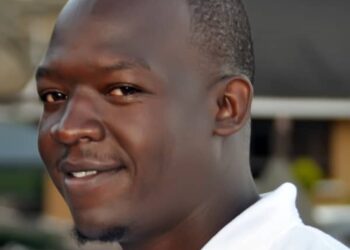Government recently announced the Parish development model where planning and implementation of projects will be brought closer to the people in an effort to boost the sluggish socio-economic transformation agenda especially among rural communities who constitute 68% of Uganda’s households.
President Yoweri Museveni said that next financial year shillings 100m (25,000USD) will be allocated to each of the 12,000 parishes countrywide. This shift comes against the backdrop of earlier models of Entandikwa, Bonnabagagawale, Zoning, Four acre, Youth Livelihood and Women Fund, Sub county, Operation Wealth Creation, and Emyooga whose collective performance have been very limited.
Over the years NRM has implemented a raft of programs to fight poverty, reduce gross inequality, cause socio-economic transformation, and create wealth and prosperity. Unfortunately, it seems there isn’t fast progress, and at some households stagnation, or retrogression are evident .
Although NRM has rebuilt a vibrant state, it hasn’t hit a decisive blow in the poverty fight. Consumer goods are plenty but there isn’t much creativity, innovation, and productivity at the household and community levels to push socio-economic transformation, sustained prosperity and enjoyment of wealth. Political and administrative leaders in districts should be made to sign pledges promising to have the job done and those who fail to fulfill their obligations should be replaced. They must foster a stronger sense of responsibility by making poverty fight their main focus.
While we have a stable country guaranteed by NRM which is vital for continuity in policy, supervision and oversight there’s laxity and abdication. State, parties and their functionaries across board at all levels don’t take responsibility seriously and commitment as they should. Also, we haven’t taken strategic and targeted poverty fight to create wealth at the local levels by improving effectiveness of programs. With the parish now mooted all the other programs targeting households and rural communities should be harmonized to remove wastage.
The measures should include accurate identification of the poor, target programs, efficient capital utilization, hiring local officials based on village conditions and achieving set goals, rather than just distributing money or inputs as currently done. We must identify the targets, determine who will carry out the work and how, and have a clear exit mechanism for successful beneficiaries. We should return to the zoning model that didn’t take off and adopt it for different sub-counties or parishes according to specific conditions to effectively address the root causes of poverty.
To win the fight against poverty, we need personnel that are focused, capable, committed and motivated. What impoverished urban and rural areas lack most are focused and committed personnel to guide them in their daily struggles. In recent years, government and political parties claimed to have large numbers of activists in rural areas, yet there is very limited success in actualizing wealth creation even among those so-called leaders.
The fundamental solution is for rural areas to rely on their own people and officials. There is need to make the training of those engaged in poverty alleviation and wealth creation at lower levels a top priority. We should also make this training rotational so as to shit experience from successful areas to those yet to achieve.
The methods of training should vary from level to level, region to region, and highlight different priorities. Training of officials at district level should focus at enhancing their thinking, understanding and instilling the sense of responsibility in the performance of their duty,. It should also help them on targeted wealth creation models and improve their analytical ability to overcome tough challenges. Training for officials at sub-county and parish level should focus on raising their capability to deal with practical problems by adopting methods on case-by-case basis, on-the-spot learning in local business and commercial enterprises.
We must build and foster an uncompromising contingent of officials proficient in targeted wealth creation measures and standards. There’s need to draw in and create incentives for people with varied sets of skills including university graduates, retired public servants and those who have worked or done business in towns to return to rural areas to participate in wealth creation through innovation, business start-ups, or serve as village officials on contract.
People living in poverty should be the target of this fight to gradually into prosperity, and greater emphasis should be put in self-motivation and capacity building for them to pull up. There is need to improve methods of assistance from handouts to job opportunities, work allowance, and subsidies for those who achieve beyond set targets. We should provide better education and guidance, push people to follow examples of role models in their areas through regular publicity activities.
Village rules and gatherings should be use to spread financial literacy, saving, investment and entrepreneurial, ethics and culture. We should exploit Covid19 to help people shun outmoded, extravagant, and wasteful practices especially during ceremonies. This could unburden the poor who usually spend so much time and resources celebrating what should be outdated traditions. The stories local achievers should be spread so that the poor are motivated and feel proud of freeing themselves from archaic practices.
Do you have a story in your community or an opinion to share with us: Email us at editorial@watchdoguganda.com













